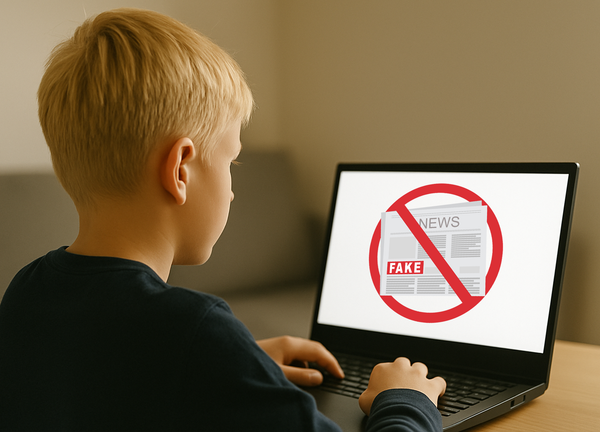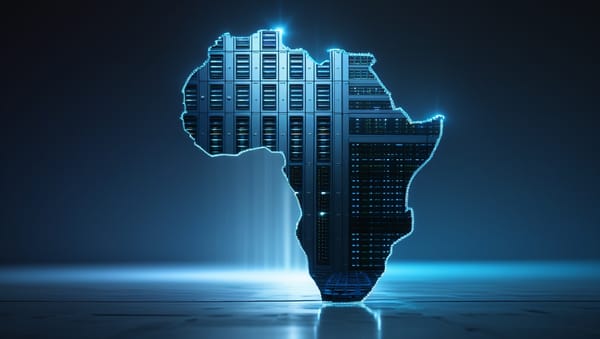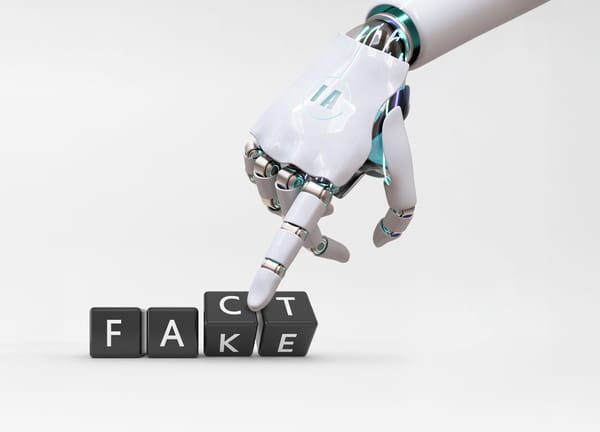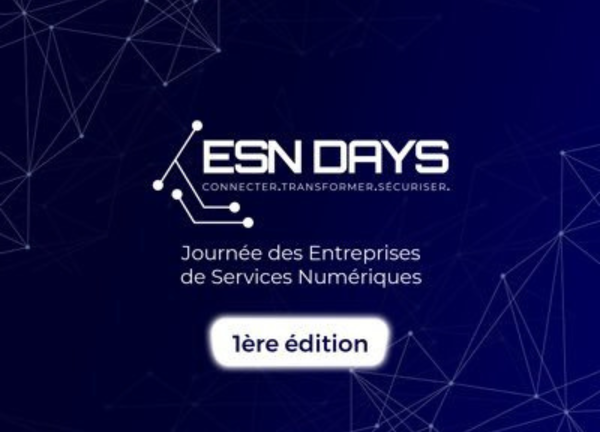Article written by Paul Zibi
The rapid evolution of information and communication technologies has profoundly transformed the way in which we access information and interact with the world around us. In Africa, where internet access and digital media is constantly growing, Africa is faced with a double challenge: appropriating digital technologies to stimulate development and guarantee inclusive governance, while fighting potential digital excesses, such as disinformation, hatred speeches and digital fracture. In this context, media and information education (EMI) appears to be an essential pillar to promote inclusive and responsible digital governance. This study intends to explore in a first part, the importance of the EMI in the promotion of inclusive digital governance in Africa (I), highlighting the challenges and opportunities that arise. In a second part, it analyzes the actions carried out with a view to strengthening the EMI for inclusive digital governance (II).
EMI: a pillar of inclusive numerical governance
The digital environment in general and African is a niche of opportunities but also has many risks that should be stewed. Media and information education whose history and issues require being presented (a) before analyzing the challenges of its integration into African education systems (B).
Genesis and challenges of the EMI
If the expression "media and information education" is recent, born in the early 2010s to translate "Media and Information Literacy" (MIL), its history is rich and complex, shaped by multiple disciplines. Understanding the EMI requires tracing its history (1) defining it as well as the skills it brings (2).
- Concept history
The concept of EMI developed with the convergence of three literacies, the media Literacy , the information Literacy and the Digital Literacy , which have long competed to impose itself, in what Olivier Le Deuff calls a "quarrel of the literacies". In its original sense, the English word "Literacy" that is found in "Media and Information Literacy", the English name for media and information education) means knowing how to read and write.TOCDE proposes a definition of literacy by putting forward "the ability to understand and use the written information in everyday life, at home, to work and in the community in order to reach personal goals and to extend its knowledge and its capacities ”(OECD, 2000).
With the development of mass media in the years 1982, initiatives aimed at organizing and supporting integrated media education programs have multiplied. This allowed UNESCO to organize a symposium that led to the Grünwald Declaration (Grünwald Declaration on Media Education which poses the principles of media education. It is from there that the oldest literacies emerges , the Media Literacy or media education ((EM) which appears to be unapported to the media or their techniques aimed at explaining the media and Operation. but with the rise of the Internet in the 2000s, the EM expanded in the need to develop "skills to decrypt the information necessary for critical analysis (...)" (Laurent Petit, 2020 ) . Autonomy of citizens in the face of the speeches they can be confronted and exposed (Salomé Kintz, 2020) and which also encompasses the media and information relationship. Create a "mixed" literacie, media and information education (EMI), in a context of the rise of digital culture, Digital Literacy (Le Deuff, 2022).
Figure1: Emi - ecology and notions

- Definition and skills of the EMI according to UNESCO
Media and information education is a set of skills which allow everyone to interact critically and effectively with communications content, institutions that provide this content and digital technologies (UNESCO, 2023). The capacities in these areas are essential for any citizen, regardless of their age or origin. Its objective is to transmit a set of skills that will allow a person to access the media, to analyze media content, to create new media messages, to reflect on existing media content and to act with the media. People initiated into the media and information are better able to understand complex messages from newspapers, magazines, books, radio, television, display panels, video games, music, internet, social media and all other media forms, as well as producing media messages themselves (DW, 2018).
UNESCO has defined a skill framework (UNESCO, 2023), essential in EMI for better inclusive digital governance. This framework introduces 14 main modules which provide rich EMI programs. The modules give an overview of the themes, learning objectives, content and activities that can be adapted by educators, all social actors and institutions in their respective countries. The following list of skills, linked to the modules, units and themes of the EMI program, highlights the specific knowledge and skills that teachers must acquire as they work on modules. When modules are selected for a private EMI program for training, they must cover most of these skills. Faced with the proliferation of information and the rise of false news, the EMI appears as an essential tool to empower citizens and promote enlightened democratic participation. Today, the integration of EMI into education systems in developing countries remains a crucial challenge.
EMI integration into African education systems: a crucial challenge
If the importance of media and information education (EMI) is no longer in doubt, its effective integration in African education systems remains a major challenge. Several obstacles hamper its implementation (1) but perfectible strategies are implemented for successful integration of the EMI in Africa (2).
- Obstacles to the integration of the EMI
The integration of media and information education (EMI) into African education systems is confronted with many obstacles, some of which are particularly linked to digital governance. Among the most important obstacles, we can evoke:
The lack of clear media education and information policies: there are hardly clear national policies to support the integration of the EMI into African education systems (Zibi Fama, 2022). As part of the study by Laurence Corry and Géraldine Apo, "media and digital education in the curricula of French -speaking countries in West Africa" and published in 2019, countries integrate the EMI, transversely within several disciplines or at least within citizenship education programs. According to these researchers, " at a highly advanced stage or much more integrated into the programs, Curricula cite elements of media education. The emerging themes, when mentioned, are decided by the high advice to the programs of each country (…) ”. As another obstacle, we have the insufficient skills of teachers in EMI: a large number of African teachers do not have the skills to teach EMI in schools. This creates an urgent need for training and professional development for teachers so that they can know the pedagogical of the EMI teaching. Besides the insufficient skills of teachers, there is the lack of educational content adapted to African contexts. This limits the variety of resources available for teachers and learners and makes EMI learning less attractive and less effective. Notwithstanding these obstacles, strategies are implemented to facilitate the integration of the EMI into African education systems.
- Strategy for successful integration of EM
UNESCO and other organizations working on EMI issues have developed standards and training guides to strengthen the skills and knowledge of educators and learners. As part of a collaboration of EMI international researchers and experts, UNESCO has designed training standards in media and information education. This is particularly the case for the teacher training program (UNESCO, 2012) and the media and information education program for educators and learners (UNESCO, 2023). This last innovative program presents a complete skills framework in EMI, as well as structured educational suggestions for educators and learners. Besides this benchmark, other documents have been designed to train trainers at EMI, in particular the practical manual for EMI trainer (Brasel & Thorsten, 2018) of Deutsche Welle (DW) Akademie or the Center of the Center for Media and Information Education (CLEMI).
In addition to designing educational training documents in EMI for educators, learners and trainers, the strategy to integrate EMI into educational systems in Africa is also to produce educational resources adapted to the African context. It is thus for example that the Cameroonian Association for Media Education (Eduk-Media) Cameroon through its professional training center in EMI work also in the design of resources adapted to the African context. More than an issue to guarantee inclusive digital governance, EMI is fundamentally a practical means of strengthening inclusive digital governance in Africa.
EMI strengthening for inclusive numbers: an appeal to action
In this part devoted to the strengthening of media education and information for inclusive digital governance, we highlight good practices in terms of EMI (A) and propose concrete recommendations on the way in which the EMI can help build a more inclusive, ethical and transparent digital environment in Africa (B).
Examples of good EMI practices in Africa
Several actors in Africa intervene sporadically or permanently in media and information education actions (EMI), through EM promotion initiatives (1) and awareness -raising and capacity building activities of players in the field (2).
- EMI promotion initiatives in Africa
Activions having a strong impact in Africa in terms of promotion of the EMI in Africa are carried by a diversity of actors. Although not numerous enough to take up the challenge of promoting it EMI, their actions impact considerably on a regional and even international scale.
In October 2023, a group of committed professionals made up of journalists, factors of facts and teachers from various African countries, developed and signed the "charter against information manipulation". This charter represents a strong commitment to fight against the growing threat of information disorders and to strengthen media and information education in Africa (Corbeaunews, 2023). Recognizing that education represents a powerful weapon against the manipulation of information and considered as the most effective means of developing a critical mind, training responsible citizens and preventing the disinfusion of disinformation. The signatories of the Charter launched an appeal to the group action of all the actors for the promotion of media and information education in order to ensure a healthy and informed informational environment.
As part of their activities, certain civil society organizations have made the EMI a priority. This is the case, for example, of the Cameroonian Association of Media Education (Eduk-Media) which has been invested in EMI promotion actions in Cameroon and Africa for several years. Eduk-Media promotes EMI through awareness-raising activities, design of educational training and advocacy resources. This organization deploys its actions to promote EMI both in Cameroon and to Africa or it to train several actors in civil society, particularly in Ivory Coast, Burkina Faso, Burundi in RCA and Chad. Other organizations such as EMI volunteers (Bemi) from Côte d'Ivoire or Educmunicafrique du Burkina Faso promoted EMI their horse of battal.
- Initiatives to verify facts and capacity building
In Africa, several initiatives aimed at strengthening EMI for inclusive digital governance are carried out and carried by civil society organizations. Most of these initiatives aim to reduce informational disorders to their simplest expression through either the EMI widely or spherically by fact verification activities (in English, Fact-cheking).
In terms of verification of the facts, Pesacheck, is the largest initiative to verify facts in Africa, with teams in 17 countries. It checks the facts in two international languages (English and French), as well as in the main African languages such as Kiswahili and Amharic. Their team of journalists and experts analyzes political and economic declarations to unravel the true from the false. Then we have Africa Check which is an independent organization of verification of the facts which operates in several African countries. Their team of journalists and researchers check the statements of public figures, media and institutions to identify false information and misunderstandings. Based in Nigeria, Dubawa is a platform for verifying the facts. They check the information circulating in the media and on social networks to provide citizens with reliable and precise information.
In terms of capacity building, organizations such as Eduk-Média, Adissi Cameroon, Defyhatenow, Bemi, Educmunicafrik etc., organize training strengthening of digital actors in Africa. The purpose of these initiatives is on the one hand, to prevent and effectively fight against information disorders. Then, they aim to promote responsible citizenship responsible and criticism of media content. The actors of the trained digital technology are made aware of the challenges related to online security, the protection of personal data and the diversity of information sources. At the end, these initiatives contribute to the strengthening of democracy and transparency: by improving the skills of digital actors in media education and information, we promote a culture of transparency, responsibility and citizen participation. Trained individuals are able to make informed decisions and participate critically in the public debate.
Recommendations to EMI actors
To promote integrated digital governance in Africa, we have proposed some key recommendations for the main digital players in particular: governments, the media (1) as well as to actors of civil society and the private sector (2).
- Governments and the private sector
- Governments should :
Set up national media education policies : the government should develop national policies aimed at integrating media education into school programs, at all levels of education. These policies should also encourage teacher training and parents awareness of the importance of media education.
Financially supporting media education initiatives : the government should allocate financial resources to support media education initiatives by civil society, media and technological companies. This could result in subsidies, public-private partnerships or tax incentives.
Guarantee access to Internet and information technology : the government should invest in digital infrastructure to guarantee equitable access to the Internet and information technology across the country. This will help reduce the digital divide and promote digital inclusion for all citizens.
- The media should:
Promote quality and verified information, by highlighting the diversity of sources of information. Tracking journalists and media professionals in good media education practices. COLLAGE with media education actors to raise public awareness of the importance of digital citizenship.
- Civil society and the private sector
- Civil society :
Organize workshops and training on media education: civil society organizations should organize workshops, training and awareness campaigns on media education for local communities. They could also collaborate with educational establishments to integrate these programs into continuing education activities.
Collaborating with local media: civil society organizations should collaborate with local media to promote quality, verified and diversified information. They could support the production of educational and informative content on digital media and raise public awareness of the issues related to digital governance.
Plaating in favor of public policies: civil society organizations can play a plea role in favor of public policies promoting media education and inclusive digital governance. They can raise awareness among political decision -makers and the general public about the challenges of media education and propose recommendations to strengthen these initiatives.
- The private sector also has an important role in:
Develop internal media education programs: private sector companies can set up media education programs to raise their employees aware of the responsible use of digital media. These programs may include training on online security, personal data protection and disinformation prevention.
Promoting transparency and responsibility: technological companies and the private media should promote transparency and responsibility in the dissemination of online information. They could set up policies to verify facts, mechanisms for reporting problematic content and commitments in favor of the diversity of information sources.
Financing media education initiatives: private sector companies can financially support media education initiatives by civil society organizations, educational establishments or local media. They could also develop partnerships to strengthen the impact of these programs and promote inclusive digital governance.
Conclusion
In conclusion, media and information education emerges as an important lever to promote inclusive digital governance in Africa. By strengthening the skills of citizens, promoting transparency and media responsibility and by encouraging collaboration between the various digital actors, we can help build a fairer, fair and democratic digital environment. It is time to act collectively to guarantee that the EMI becomes an essential pillar of digital governance in Africa, at the service of the well-being of all citizens.









